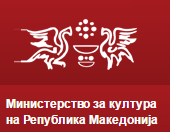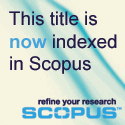JSER Policies
JSER Online
JSER Data
Frequency: quarterly
ISSN: 1409-6099 (Print)
ISSN: 1857-663X (Online)
Authors Info
- Read: 73690
JSER Guidelines for Reviewers
1. About JSER
JSER is the leading open-access special educational and medical journal, providing an innovative and influential venue for research and comment on the major challenges to human health protection worldwide. We specifically seek to publish papers which have relevance across a range of settings and that address the major environmental, social, and political determinants of health, as well as the biological.
JSER has priority areas and we make decisions based on whether papers are likely to directly and substantially affect clinical practice or public health policy, or have implications of broad general interest for the direction of future, directly clinically relevant research. In addition, we seek to publish papers that address important topics in the ethics and reporting of medical research.
References
- Lopez AD, Mathers CD, Ezzati M, Jamison DT, Murray CJL. Global Burden of Disease and Risk Factors. New York: The World Bank and Oxford University Press, 2006.
- World Health Organization (2004) The global burden of disease. Deaths and DALYs 2004: Annex tables. Available: http://www.who.int/healthinfo/global_burden_disease/GBD_report_2004update_AnnexA.pdf. Accessed 27 March 2009.
- Mathers CD, Loncar D (2006) Projections of global mortality and burden of disease from 2002 to 2030. PLoS Med 3(11): e442. doi:10.1371/journal.pmed.0030442.
- Mladenovska B, Trajkovski V. Opinions and attitudes of parents and students for sexual development, sexual behavior and gender identity of persons with autism in the Republic of Macedonia. Journal of Special Education and Rehabilitation 2010; 11 (1-2): 7–24.
JSER is published twice a year online.
2. Criteria for Publication
Manuscripts should represent a substantial advance in special education and medical science or practice within the scope of the journal as noted above in terms of:
- Originality.
- Importance to researchers or practitioners in the field.
- Interest for researchers or practitioners outside the field.
- Rigorous methodology with substantial evidence for its conclusions.
- Conducted according to the highest ethical standards.
3. The Review Process
Submitted manuscripts will be assigned to one of the JSER editors. If the paper is deemed to be within the scope of the journal with regard to content and of a minimum quality an academic editor with expertise in the relevant area, usually one of our editorial board, is then also assigned to the paper. The editor-in-chief and editorial board member will promptly assess the manuscript and will decide if it is likely to meet the requirement of providing a major advance in a particular field and describing a sufficient body of work to support that claim; if so, it will be sent out for peer review. The professional and academic editors then together make a decision based on the reviewers' comments. There are several types of decision possible:
- Accept the manuscript as submitted.
- Accept it with minor revision.
- Invite the authors to submit a major revision of the manuscript before a final decision is reached.
- Reject, typically because it does not fit the criteria outlined above of originality, importance to the field, cross-discipline interest, or sound methodology.
When differences of opinion occur between reviewers, the professional editor and the academic editor weigh all comments and arrive at a balanced decision based on all comments. To assist in this process, the reviewer should provide the editors with as much information as possible. A review that clearly outlines reasons both for and against publication is therefore of as much, or even more, value as one that makes a direct recommendation.
If reviewers appear to disagree fundamentally, the editors may choose to share all the reviews with each of the reviewers and by this means elicit additional comment that may help the editors to make a decision. The academic and professional editors then assess the recommendations and comments of the reviewers alongside comments by the authors and material that may not have been made available to those reviewers.
When a paper has been revised in response to comments by reviewers or when authors feel their argument has been misconstrued in review, we ask reviewers to offer additional comments on the revised or contested manuscript. We request that reviewers make themselves available to provide such follow-up advice. We are nevertheless aware that reviewers do not wish to be involved in extended discussions over papers, and we keep such consultations to a minimum while still allowing authors a fair hearing.
4. Reviewer Selection
We decide on reviewers for a particular manuscript based on many factors, including expertise, reputation, specific recommendations of authors and academic editors, and the professional editor's own knowledge of a reviewer.
As part of our editorial procedure, we regularly confer with potential reviewers before sending them manuscripts to review. Reviewers should bear in mind that even these initial messages or conversations contain confidential information.
5. Writing the Review
The purpose of the review is to provide the academic and professional editors with an expert opinion regarding the quality of the manuscript under consideration, and should also supply authors with explicit feedback on how to improve their papers so that they will be acceptable for publication in JSER. In the interests of complete transparency we do not allow confidential comments for the editors. Please therefore assume that all the comments you make will be transmitted to the authors. The best possible review would answer the following questions:
- What are the main claims of the paper and how important are they?
- Are these claims novel? If not, please specify papers that weaken the claims to the originality of this one.
- Are the claims properly placed in the context of the previous literature?
- Do the results support the claims? If not, what other evidence is required?
- If a protocol is provided, for example for a randomized controlled trial, are there any important deviations from it? If so, have the authors explained adequately why the deviations occurred?
- Would any other experiments or additional information improve the paper? How much better would the paper be if this extra work was done, and how difficult would such work be to do, or to provide?
- Is this paper outstanding in its discipline? (For example, would you like to see this work presented in a seminar at your hospital or university? Do you feel these results need to be incorporated in your next general lecture on the subject?) If yes, what makes it outstanding? If not, why not?
- Who would find this paper of interest? Why?
- If the paper is considered unsuitable for publication in its present form, does the study itself show sufficient enough potential that the authors should be encouraged to resubmit a revised version?
If you intend to provide a marked up copy of your manuscript as part of your review, you can do so by uploading the file to the review form. However, we prefer to have these marked-up files in PDF format rather than Word to ensure that the comments and annotations can be easily forwarded to the author. Please remember to anonymize your comments.
6. Other Questions for Consideration
In the case of manuscripts deemed worthy of consideration, we would appreciate additional advice from the reviewer on the following:
- Is the manuscript clearly enough written so that it is understandable to non-specialists? If not, how could it be improved? (Please concentrate on matters of organization and content and not on grammatical or spelling errors that will be corrected by our copyeditor after acceptance.)
- Have the authors provided adequate proof for their claims without overselling them?
- Have the authors cited the previous literature appropriately?
- Does the paper offer enough details of its methodology that its experiments or its analyses could be reproduced?
- JSER encourages authors to publish detailed methods as supporting information online. Do any particular methods used in the manuscript warrant such publication?
7. Peer Review for Magazine articles
The best possible review of an article in the JSER Magazine section would consider a different set of questions:
Relevance and interest
- Is the article relevant and of interest to a general international special educational and medical audience?
- Does it address a health topic that matters on a global scale? Will it be relevant to readers in both high and low income countries?
- Impact
- Do you think this article will have an impact—upon clinicians, researchers, health policymakers, or the broader public? Will it be widely read, disseminated, and cited? Could it help to improve public and/or global health? Will health reporters find it of interest?
Content
- Does the article contain any inaccurate information? Are the authors' claims evidence-based?
- Have the authors missed out anything important—including important research findings—on the topic they're writing about? Please provide details of anything important that is missing.
Originality
- Does this article contain enough new information to warrant publication? Does it take the discussion and debate on this topic in a novel direction?
Presentation
- Is the article well written, clear, and easy for a non-specialist—or for someone whose first language is not English—to understand?
- Are there any specific sections that do not make sense?
- If tables and figures have been included, do they help the reader, or are they unnecessary? Could they be improved? Do you have suggestions for additional items (summary boxes, graphics etc.)?
8. Confidentiality
The review process is strictly confidential and should be treated as such by reviewers. Because the author may have chosen to exclude some people from this process, no one not directly involved with the manuscript, including colleagues or other experts in the field, should be consulted by the reviewer unless such consultations have first been discussed with the professional editor.
9. Timely Review
JSER believes that an efficient editorial process that results in timely publication provides a valuable service both to authors and to the community at large. We therefore request that reviewers respond promptly, usually within 15 days of receipt of a manuscript. If reviewers need more time, we request that they contact us promptly so that we can keep the authors informed and, if necessary, assign alternate reviewers.
10. Anonymity
JSER encourages anonymous peer-review. As a default, we will not pass a reviewer's name on to the authors along with the comments. However, if reviewers wish to have their name revealed, we will honor that request. We discourage any attempt on the part of authors to discover the identity of any reviewer or to contact this person directly. We encourage the reviewers to adopt the same policy. The academic editor is also anonymous to authors and reviewers unless and until a manuscript is accepted for publication. The academic editor's name is then indicated in the published article.
11. Editing Reviewers' Reports
The editors and JSER staff do not edit any comments made by reviewers unless the language is deemed inappropriate for professional communication or the comments contain information considered confidential. In their comments to authors, reviewers are encouraged to be honest but not offensive in their language. On the other hand, authors should not confuse frank and perhaps even robust language with unfair criticism.
In the interests of complete transparency we do not allow confidential comments for the editors. Reviewers should therefore assume that all the comments you make will be transmitted to the authors.
12. Feedback to Reviewers
We send reviewers' comments along with the decision letter to all reviewers of that manuscript. If reviewers have identified themselves, this information will be passed on to other reviewers. Reviewers who may have offered an opinion not in accordance with the final decision should not feel that their recommendation was not duly considered or their service not properly appreciated. Experts often disagree, and it is the job of the editorial team to make a final publication decision.
13. Thank You to Previous Reviewers
We would like to thank these people for their support in reviewing or editing papers before 20 February 2010.
Share Us
Journal metrics
-
 SNIP 0.059
SNIP 0.059 -
 IPP 0.07
IPP 0.07 -
 SJR 0.13
SJR 0.13 -
 h5-index 7
h5-index 7 -
 Google-based impact factor: 0.68
Google-based impact factor: 0.68
10 Most Read Articles
- PARENTAL ACCEPTANCE / REJECTION AND EMOTIONAL INTELLIGENCE AMONG ADOLESCENTS WITH AND WITHOUT DELINQUENT BEHAVIOR
- RELATIONSHIP BETWEEN LIFE BUILDING SKILLS AND SOCIAL ADJUSTMENT OF STUDENTS WITH HEARING IMPAIRMENT: IMPLICATIONS FOR COUNSELING
- EXPERIENCES FROM THE EDUCATIONAL SYSTEM – NARRATIVES OF PARENTS WITH CHILDREN WITH DISABILITIES IN CROATIA
- INOVATIONS IN THERAPY OF AUTISM
- AUTISM AND TUBEROUS SCLEROSIS
- DIAGNOSTIC AND TREATMENT OPTIONS IN AUTISTIC SPECTRUM DISORDERS – AN OVERVIEW
- THE DURATION AND PHASES OF QUALITATIVE RESEARCH
- REHABILITATION OF PERSONS WITH CEREBRAL PALSY
- DISORDERED ATTENTION AS NEUROPSYCHOLOGICAL COGNITIVE DISFUNCTION
- HYPERACTIVE CHILD`S DISTURBED ATTENTION AS THE MOST COMMON CAUSE FOR LIGHT FORMS OF MENTAL DEFICIENCY
















